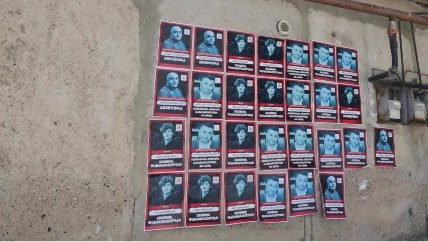Fighting Russian Disinformation: Ukraine, Moldova, and Georgia
This year, Moldova and Georgia are set to hold parliamentary elections, while Ukraine contends with significant Russian offenses, both online and offline, in occupied and recently liberated territories. However, these countries are not fully prepared for the emerging trends in the disinformation widely spread by Russian and Chinese malign actors. European mechanisms such as the DSA and the DMA will not be available to these countries in the near future, and the transparency of social platforms will remain uncertain through the fall, when national elections will decide on pursuit of EU membership.
Well into the third year of brutal war in Ukraine, Russian disinformation channels, along with tanks and bombs, continue to undermine key aspects of democracy and democratic principles. Tragically, the conflict has resulted in the death or injury of almost half a million people and the displacement of up to ten million more. However, progress on the frontline is closely tied to the impact of information on the local residents, with Ukrainians in the occupied regions highly vulnerable to Russian propaganda. At the same time, the conflict has crossed national borders and resonated in each country of the Eastern Partnership. In Georgia, the conflict has recently manifested itself in attempts to change Georgia’s Euro-Atlantic foreign policy course through legislation modeled on Russia’s “foreign agents” law. This law requires groups that receive financial support from abroad to register with the government—a requirement seen by civil society as a restriction on democracy. Moldova, having ended the state of emergency it declared on February 24, 2022, is holding an EU membership referendum this fall to uphold its commitment to European values and move forward from the recently dismantled Russian-backed oligarchic system.
The Kremlin Connives
Despite the historic progress toward EU membership, Eastern Europe’s vulnerability to Russian disinformation campaigns is particularly alarming given the high social-media penetration in the region. The internet reaches 88.4% of households according to the marketing firm We Are Social, while social media usage stands at 70.4% of the population. As The Economist famously noted, connectivity not only reshapes the battlefield but also the information wars waged on it. Social media platforms contribute significantly to perceptions of the conflict and of the target countries’ need to protect genuine democratic processes.
Russian disinformation tactics, which exploit an impressive array of social media platforms, are savvy and widespread. Their strategies use targeted approaches that continuously adapt and respond to the most emergent problems in the region. The Guardian (UK) reports that even TikTok influencers have been co-opted into boosting pro-Russian narratives, highlighting the depth and breadth of the Kremlin’s campaigns. Voice of Europe, a YouTube channel identified as a Russian propaganda tool, has made inroads into the European political arena. POLITICO analysis revealed that members of the European Parliament, particularly those from the far right, have given interviews to the channel and participated in debates on it, spreading pro-Russian narratives. Although Voice of Europe lacks a large viewership, its influence is magnified significantly through other online platforms such as X (formerly Twitter) and Facebook.
Russia’s information and psychological campaigns in Ukraine are particularly notable for their effectiveness in exploiting social perceptions and emotions around sensitive issues to destabilize the country. Kyiv has made some efforts to counter these campaigns, including through greater media literacy among the public, both in Ukraine and elsewhere, especially among vulnerable groups such as the elderly. The “How Not to Become a Vegetable” initiative, which organizes lectures and workshops, is a step in this direction. This campaign trained 44,000 Ukrainian teachers in information hygiene and created almost six million minutes of educational material on its official YouTube and Facebook pages. However, these efforts may not be sufficient to address campaigns such as the dissemination of well-resourced fake news about a “Global War Party” against Russia that is allegedly trying to open a “second front” in Georgia, or deep fakes portraying President Sandu negatively.

International Assistance Needed
Georgia, Moldova, and Ukraine can better equip themselves to combat disinformation during this crucial election year if they are not left isolated. The EU’s recently adopted flagship initiatives, the DSA and the DMA, along with the Disinformation Code of Conduct, could prove to be important tools for strengthening the democratic fabric of these societies. This recent legislation provides measures for regulating and holding online platforms accountable, while also helping to implement defensive methods such as transparency in political advertisements, the promotion of civic discourse, and the introduction of election-monitoring tools. Furthermore, Georgia, Moldova, and Ukraine require EU support to enhance their leverage over major communication platforms that continue to ignore changes requested by civil societies amid a highly effective and subversive Russian disinformation campaign.
In the months ahead, Ukraine and Moldova will embark on long-awaited European membership negotiations, while Georgia aims to maintain progress following the 2024 European Commission report. However, the three states’ historic but fragile progress will face a stern test in the upcoming fall elections, and the outcomes could affect the democratic peace of the entire European continent.